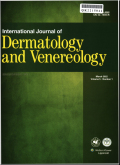mTOR-Dependent Autophagy Machinery Is Inhibited in Fibroblasts of Keloid
mTOR-Dependent Autophagy Machinery Is Inhibited in Fibroblasts of Keloid
摘要Objectives::Mechanistic target of rapamycin (mTOR) activation has been identified in keloid. This study aimed to identify the role of mTOR-dependent autophagy activity in keloid.Methods::We detected the expression of specific proteins representing mTOR activity and baseline autophagy levels in keloid tissues (KTs) and primary keloid fibroblasts (KFs) using immunohistochemical staining and western blotting. Simultaneously, the formation of acid vesicles was assessed by acridine orange staining in KFs. To investigate whether mTOR-dependent pathway mediated the regulation of autophagy machinery in keloid, we first validated whether mTOR inhibitors, rapamycin (100 nmol/L) and KU-0063794 (5 μmol/L), could inhibit mTOR activity in KFs by western blotting. Then we explored the reverse effects on autophagy activity induced by mTOR inhibitors in the presence of lysosomal protease inhibitors by western blotting.Results::It demonstrated elevated expression of mTOR, S6, and their activated forms in KTs, and an elevated expression of p-S6 Ser235/236 in KFs, suggesting mTOR was activated in keloid. Less LC3 and Beclin1 were expressed in the cytoplasm of KFs, whereas Ubiquitin was abundantly expressed in KTs compared with extra-lesional tissues. In addition, at the cellular level, an impeded conversion of LC3-I to LC3-II was shown in KFs and the formation of acid vesicles were also decreased in KFs compared with normal fibroblasts (NFs), indicating that autophagy activity is defective in keloid. mTOR inhibitors, Rapamycin (E-64d + pepstatin vs. rapamycin + E-64d + pepstatin: [0.88 ± 0.35] vs. [1.56 ± 0.46], F= 5.56, P= 0.049) and KU-0063794 (E-64d + pepstatin vs. KU-0063794 + E-64d + pepstatin: [0.92 ± 0.22] vs. [1.51 ± 0.25], F= 25.88, P= 0.011) can reverse the inhibition effect on autophagy of KFs while inhibiting mTOR activity. Conclusion::Autophagy machinery is inhibited in keloid which is regulated by mTOR-dependent pathway.
更多相关知识
abstractsObjectives::Mechanistic target of rapamycin (mTOR) activation has been identified in keloid. This study aimed to identify the role of mTOR-dependent autophagy activity in keloid.Methods::We detected the expression of specific proteins representing mTOR activity and baseline autophagy levels in keloid tissues (KTs) and primary keloid fibroblasts (KFs) using immunohistochemical staining and western blotting. Simultaneously, the formation of acid vesicles was assessed by acridine orange staining in KFs. To investigate whether mTOR-dependent pathway mediated the regulation of autophagy machinery in keloid, we first validated whether mTOR inhibitors, rapamycin (100 nmol/L) and KU-0063794 (5 μmol/L), could inhibit mTOR activity in KFs by western blotting. Then we explored the reverse effects on autophagy activity induced by mTOR inhibitors in the presence of lysosomal protease inhibitors by western blotting.Results::It demonstrated elevated expression of mTOR, S6, and their activated forms in KTs, and an elevated expression of p-S6 Ser235/236 in KFs, suggesting mTOR was activated in keloid. Less LC3 and Beclin1 were expressed in the cytoplasm of KFs, whereas Ubiquitin was abundantly expressed in KTs compared with extra-lesional tissues. In addition, at the cellular level, an impeded conversion of LC3-I to LC3-II was shown in KFs and the formation of acid vesicles were also decreased in KFs compared with normal fibroblasts (NFs), indicating that autophagy activity is defective in keloid. mTOR inhibitors, Rapamycin (E-64d + pepstatin vs. rapamycin + E-64d + pepstatin: [0.88 ± 0.35] vs. [1.56 ± 0.46], F= 5.56, P= 0.049) and KU-0063794 (E-64d + pepstatin vs. KU-0063794 + E-64d + pepstatin: [0.92 ± 0.22] vs. [1.51 ± 0.25], F= 25.88, P= 0.011) can reverse the inhibition effect on autophagy of KFs while inhibiting mTOR activity. Conclusion::Autophagy machinery is inhibited in keloid which is regulated by mTOR-dependent pathway.
More相关知识
- 浏览0
- 被引2
- 下载0


相似文献
- 中文期刊
- 外文期刊
- 学位论文
- 会议论文



 换一批
换一批 换一批
换一批



